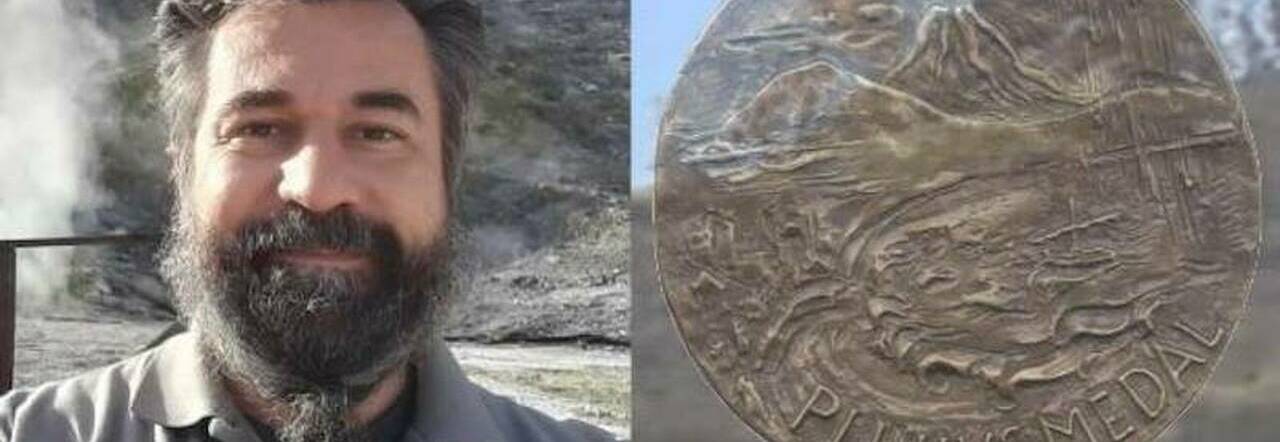Professor Jacopo Selva Awarded the Plinius Medal by the European Geophysical Union 2024 for Transformative Research in Hazard Modeling

Thursday 14 March 2024, 14:34
3 Minutes of Reading
The Plinius European Geophysical Union 2024 medal has been awarded to Professor Jacopo Selva of the University of Naples Federico II for his transformative research in the quantitative modeling of seismic, volcanic, and tsunami hazards, which has led to relevant applied solutions used in civil protection and emergency management. The medal was established by the Natural Hazards division of the European Geophysical Union to recognize interdisciplinary research on natural hazards. The name of Gaius Plinius Secundus (~23 – 79 AD), well known to the city of Naples, acknowledges the role of our ancestors who dedicated themselves to improving the knowledge of natural hazards and their mitigation. The medal is awarded annually as recognition for high-level interdisciplinary research on the assessment of different types of natural hazards and their applications in the field of hazard reduction. This year the EGU Awards Committee honored 52 out of 218 eligible nominations, awarding prizes and medals to geoscientists for their exceptional contributions to research in Earth, planetary, and space sciences.
Jacopo Selva earned his PhD in geophysics at the University of Bologna, has been a researcher at the National Institute of Geophysics and Volcanology, and is currently an associate professor at the Department of Earth, Environment, and Resource Sciences. In recent years, he has developed innovative and high-impact research on various types of natural hazards, particularly on the estimation of tsunami and volcanic hazard. The research, widely cited in international literature, has also had important applicative aspects for the city of Naples and beyond. He has also coordinated working groups for the estimation of natural hazards for the island of Ischia, a natural laboratory for multi-hazard. Selva's scientific interests include the probabilistic assessment of volcanic risk, the probabilistic assessment of seismic risk, the probabilistic assessment of tsunami hazard, multi-hazard and multi-risk assessments, the quantification of uncertainties in hazard and risk assessments, precursor models of volcanic eruptions, and the short and long-term interactions between earthquakes and between earthquakes and volcanic eruptions.
His main contributions are in the fields of probabilistic assessment of volcanic hazard and probabilistic assessment of seismic hazard, and more recently in the field of probabilistic assessment of tsunami risk. Selva has transformed these fields by introducing new quantitative methods integrated into a more general framework. He has also contributed to the development of probabilistic forecasts and hazard models that correctly account for and propagate uncertainties and that integrate different types of information, such as physical models, observations, and expert opinions. He has developed key tools for the long and short-term prediction of eruptions and tsunami floods. He is one of the developers of the Bayesian Event Tree for eruption forecasting and the volcanic hazard model, and is the lead author of the probabilistic tsunami forecasting method. The probabilistic tsunami forecast explicitly accounts for data and forecasting uncertainties and allows for connecting forecasts in a rational decision-making warning system. This is an important step forward in defining how uncertainties can be used for rational decision-making.
Selva's work has significant implications for risk assessment and mitigation. He has successfully led several working groups for the Italian Department of Civil Protection, bringing together researchers from INGV and the Italian academic world. In 2015, he was the coordinator of the working group that conducted the scientific assessment of hazards for the definition of the official 'yellow zone' of the evacuation plan for tephra fallout from the Campi Flegrei volcano in Naples, Italy, one of the highest risk volcanic areas in the world. In 2016-2017, he coordinated two working groups dedicated to creating the scientific basis for the definition of reference scenarios and alert levels for the island of Ischia, and for the island of Vulcano, in Italy. As a principal investigator or task leader, Selva has been involved in eight projects related to natural hazards.
Furthermore, Selva has supervised several early-career students and researchers, including Master's students, a PhD student, interns, and post-doctoral fellows. He is the author or co-author of over 100 articles in major international peer-reviewed journals, including numerous high-impact papers. In conclusion, Jacopo Selva has conducted fundamental interdisciplinary transformative research in the field of natural hazards, with exceptional contributions ranging from the assessment of volcanic phenomena hazards to the modeling of seismic and tsunami hazards.
© ALL RIGHTS RESERVED
This article is automatically translated
This article is automatically translated
